Today Leiden University ( @UniLeiden) celebrates its 446 birthday (est. 1575 AD). Leiden is especially renowned for its dedication to teach and promote Arabic and Islamic studies. A thread on the history of Arabic and Islam at Leiden 1/
Frans vV (born 1539 AD) was the first to teach Arabic at Leiden University. He was a Protestant scholar who specialised in Hebrew, but when appointed to a teaching post at Leiden in 1586 AD he started to include Arabic material alongside Hebrew 2/
Van Ravelingen produced two works related to Arabic while at Leiden: the Specimen characterum Arabicorum Officinae Plantinianae Fran. Raphelengij (a table of his Arabic types, making Leiden the second place after Rome to print Arabic in Europe) and 3/
the Lexicon arabicum (an Arabic-Latin dictionary) which eventually appeared in 1613 AD, published posthumously by his son 4/
But probably the most important Arabist at Leiden was Joseph Scaliger, the French Protestant humanist who came to Leiden in 1593 AD. Scaliger a polymath who knew Greek, Latin, Arabic, Hebrew, among a host of other languages 5/
Scaliger enjoyed a great reputation in Europe as one of the foremost scholars of the continent. Leiden invited him to become the "ornament of the university", so much as that he was given a military escorts to Leiden by the king of France. 6/
Scaliger arrived in Leiden on 26 August 1593. He was received by the locals and high-ranking Leiden officials including the rector. Paid handsomely, he had no obligation to teach, though he did offer some classes to select students 7/
A modest scholar, he once remarked to his friend Isaac Casaubon, "I have worked my way through many Arabic book and have assembled a mass of words from reading them. And yet I find that I have achieved next to nothing." 8/
Except he did. Scaliger wrote an Arabic dictionary, Thesaurus lingual Arabicae, which was never printed, as well as Latin translations of Arabic proverbs (published five years after his death) 9/
The next Leiden Arabist of note is Thomas van Erpe (born 1584 AD). Van Erpe was the first professor of Arabic at Leiden. Before joining Leiden, Van Erpe studied Arabic at Oxford and Cambridge, as well as taking instructions from the English Arabist William Bedwell (d. 1632). 10/
Van Erpe took his chair in Arabic on 9 February 1613 AD marking the official start of an independent chair in Arabic. In his inaugural speech 8 May 1613, Van Erpe spoke glowingly of the Arabic language, but also stated Arabic was indispensable for conversion of Muslims 11/
A committed Protestant, Van Erpe dedicated much energy during his time at Leiden to collect manuscripts and translate numerous Arabic texts for the purpose of teaching and for the Protestant missions in the Muslim world 12/
In the seventeenth century Jacob Gool (born 1596) advanced the study of Arabic at Leiden, laying the foundations for the academic study of Arabic in the centuries to come. Gool collected many Arabic manuscripts adding to Leiden's impressive collection. 13/
Gool spent considerable time in Morocco to improve his Arabic. He was considered the student and successor to Thomas van Erpe. While in Morocco, Gool became close to Sufi Muslims in particular one Aḥmad b. Ḥusām al-Gulshānī. 14/
Once in Leiden he took the chair of Arabic in 1629 AD, as well as being nominated professor of Mathematics. He spent the remainder of his life studying Arabic mathematical texts and Arabic texts on optics and geography. He also showed interest in Arabic works on botany. 15/
In the eighteenth century the Arabist of note at Leiden was Albert Schultens (born 1686). Trained in theology and Hebrew, he was a preacher in Wassernaar (close to Leiden). He developed a theory of Biblical interpretation and the role of Arabic. 16/
Gulten famously opined that Arabic and Syriac are the daughters or dialects of Hebrew. Gulten became professor of Arabic at Leiden in 1729, though technically his title was Reader in Eastern Languages. In 1748 he published Grammatica Arabica, a work on Arabic grammar. 17/
The most significant Arabist at Leiden in the eighteenth century was Jan Jacob Schultens, son of Albert Schultens (above). He enrolled at Leiden at 14 to study eastern languages. He too found utility in Arabic to study the Hebrew Bible. 18/
In the nineteenth century the most celebrated Leiden Arabist was Reinhart Pieter Anne Dozy (died in 1883). Although he was never appointed to professor of Arabic, he took up a chair in medieval and modern history on 9 March 1850. Dozy specialised in Arabic lexicography, 19/
& Hebrew, Persian, Aramaic, and Turkish. He later developed an interest in Spanish-Arabic texts, writing on the ʿAbbadids of Seville. Fiercely critical of clericalism in Islam and Christianity, Dozy once described Islam as obstacle to scholarly progress, in his Het Islamisme 20/
Arguably the most famous of Leiden Arabists was Michael Jan de Goeje (1836-1909). De Goeje was a theologian who studied Arabic and Syriac, which he considered dialects of Hebrew. In 1886 De Goeje was appointed extraordinary professor in Eastern Languages 21/
De Goeje is famous for a number of achievements but chief among them is his work and discovery of lost volumes from al-Ṭabarī's Annals. He produced an edition of Ṭabarī after completing the last volume in 1879. He managed to reconstruct the entire work of Ṭabarī 22/
In the modern period there is little doubt Christiaan Snouck Hurgronje was the most known Arabist in Leiden (and Europe). He was a controversial figure, who introduced colonial Islamic Studies into the academic world. 23/
Hurgronje used his knowledge of Islam and Arabic to serve colonial and political ideologies. Hurgronje travelled to Saudi Arabia to observe the ḥajj pilgrimage in Mecca and Medina. He arrived in Mecca on 22 February 1885 and performed the ṭawāf around the Kaʿbah. 24/
Hurgronje did claim to convert to Islam, even marrying two Muslim wives (native Javanese) and fathering five children. He went by the name ʿAbd al-Ghaffār. [pic of Hurgronje receiving Saudi Crown Prince Suʿūd b. ʿAbd al-ʿAzīz in Leiden in 1935]... END.
Addendum and corrections: Frans van Ravelingen)
Addendum: the tweets are summaries of the excellent and visually rich work below https://brill.com/view/title/24867?language=en

 Read on Twitter
Read on Twitter
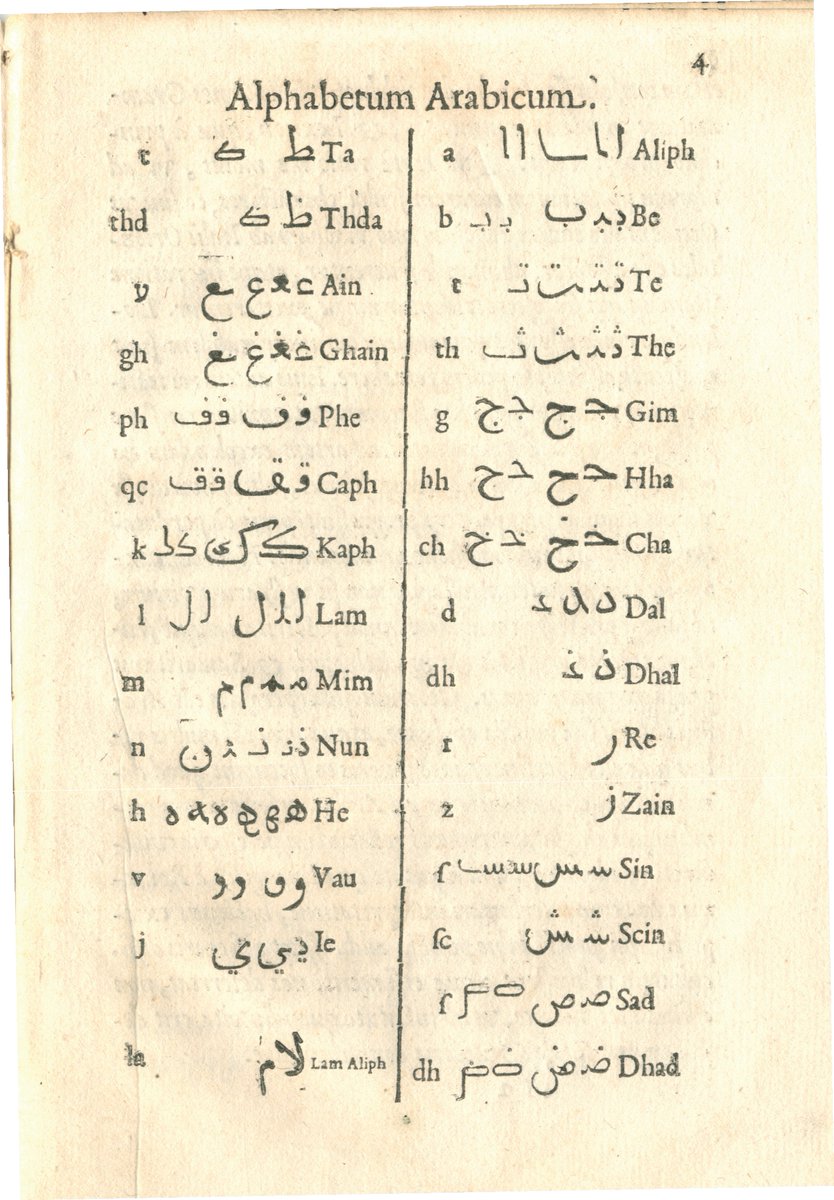

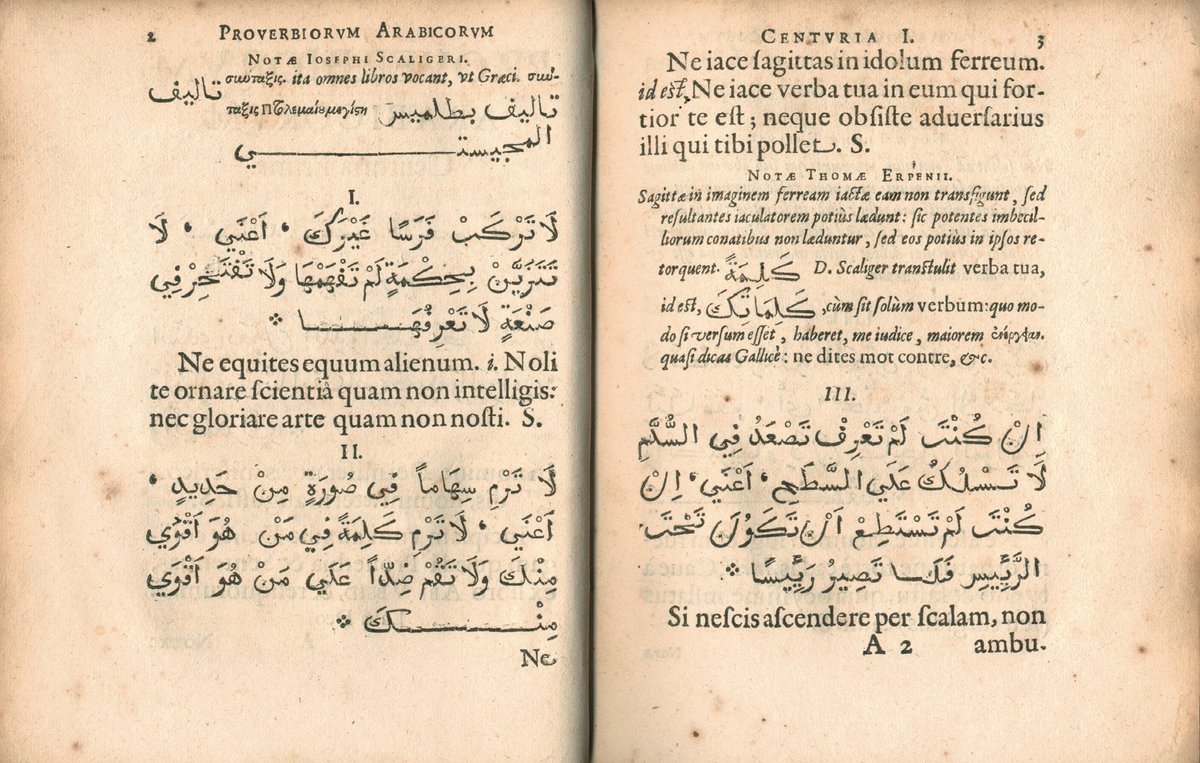


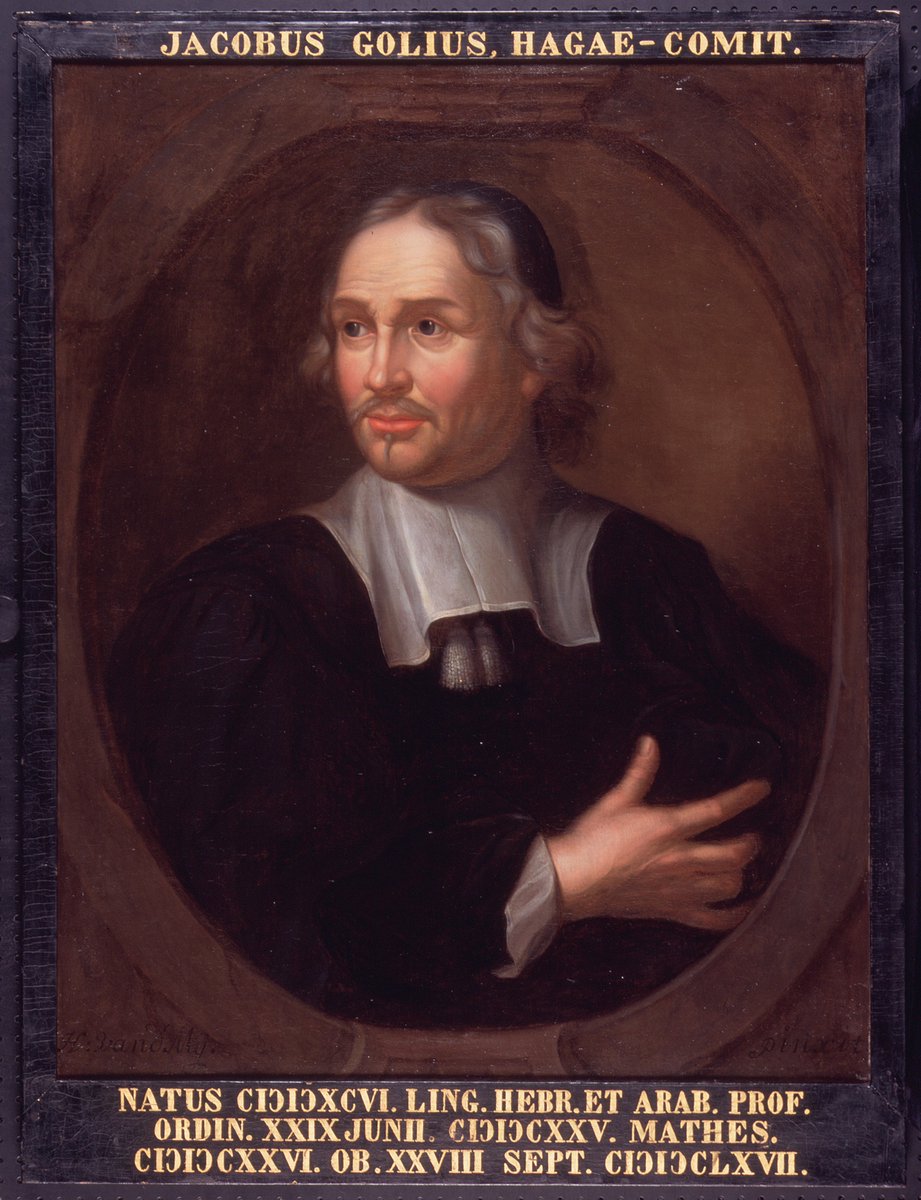
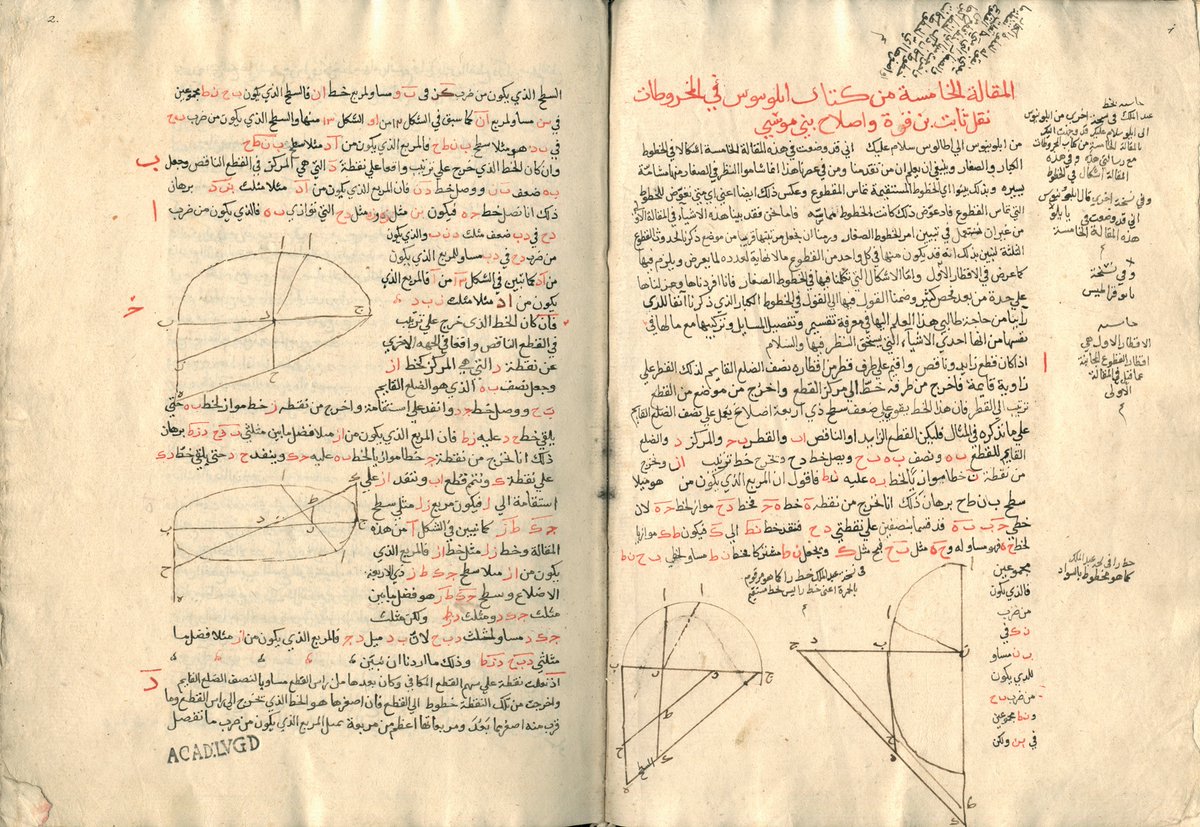



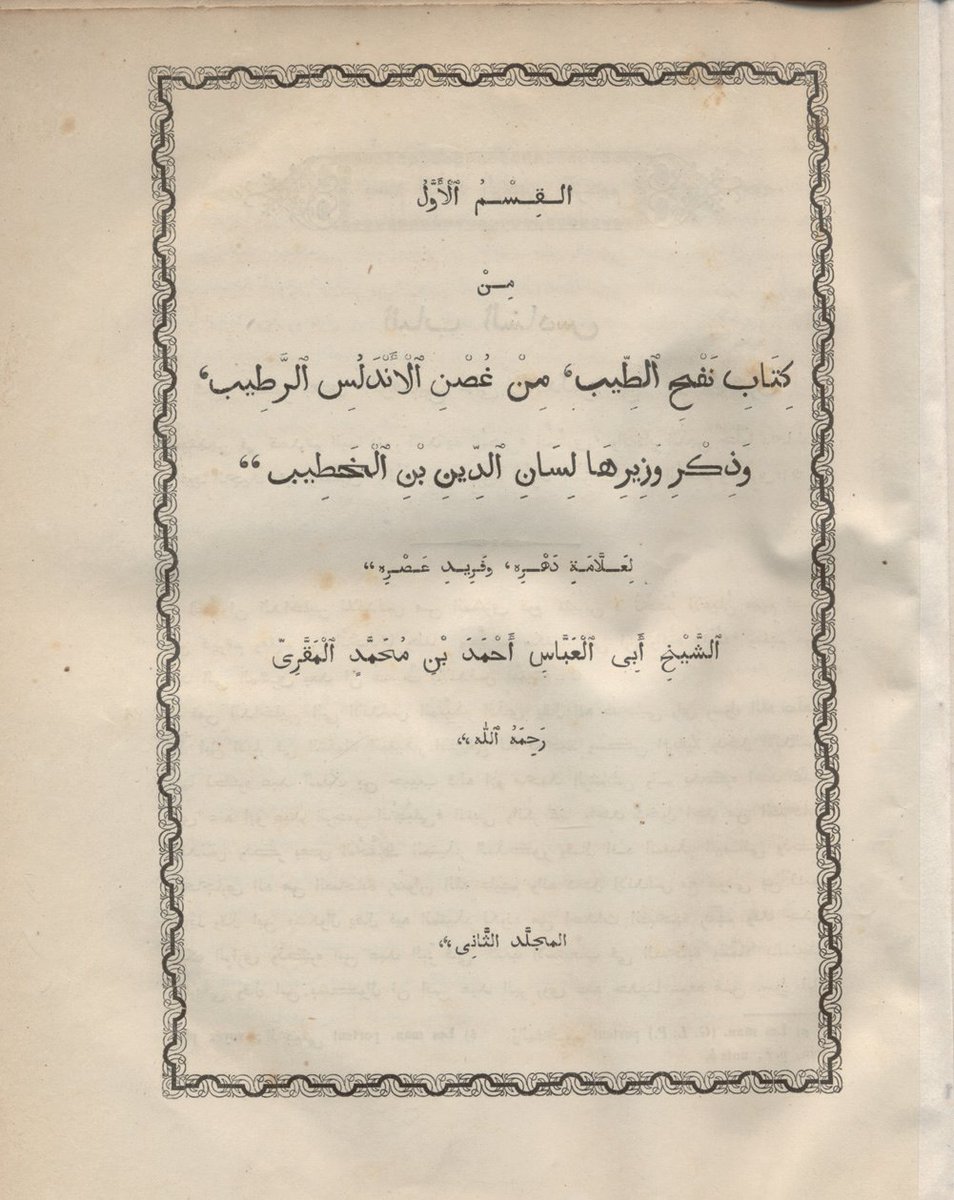
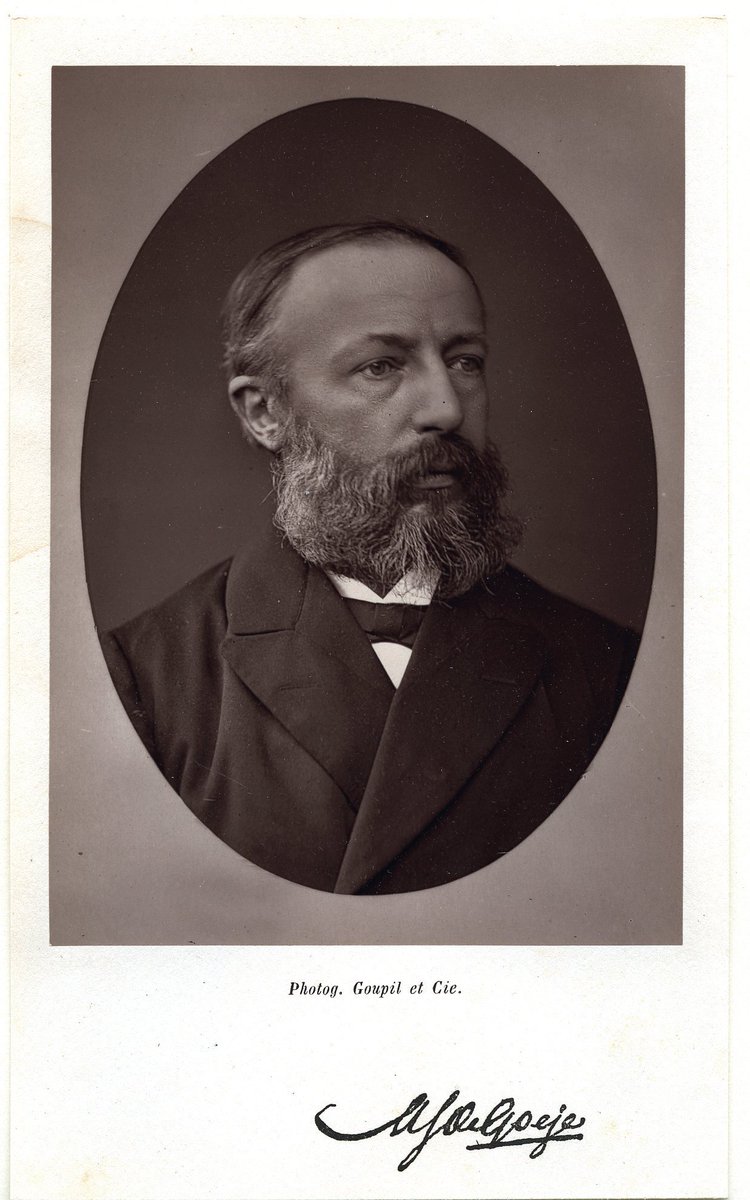
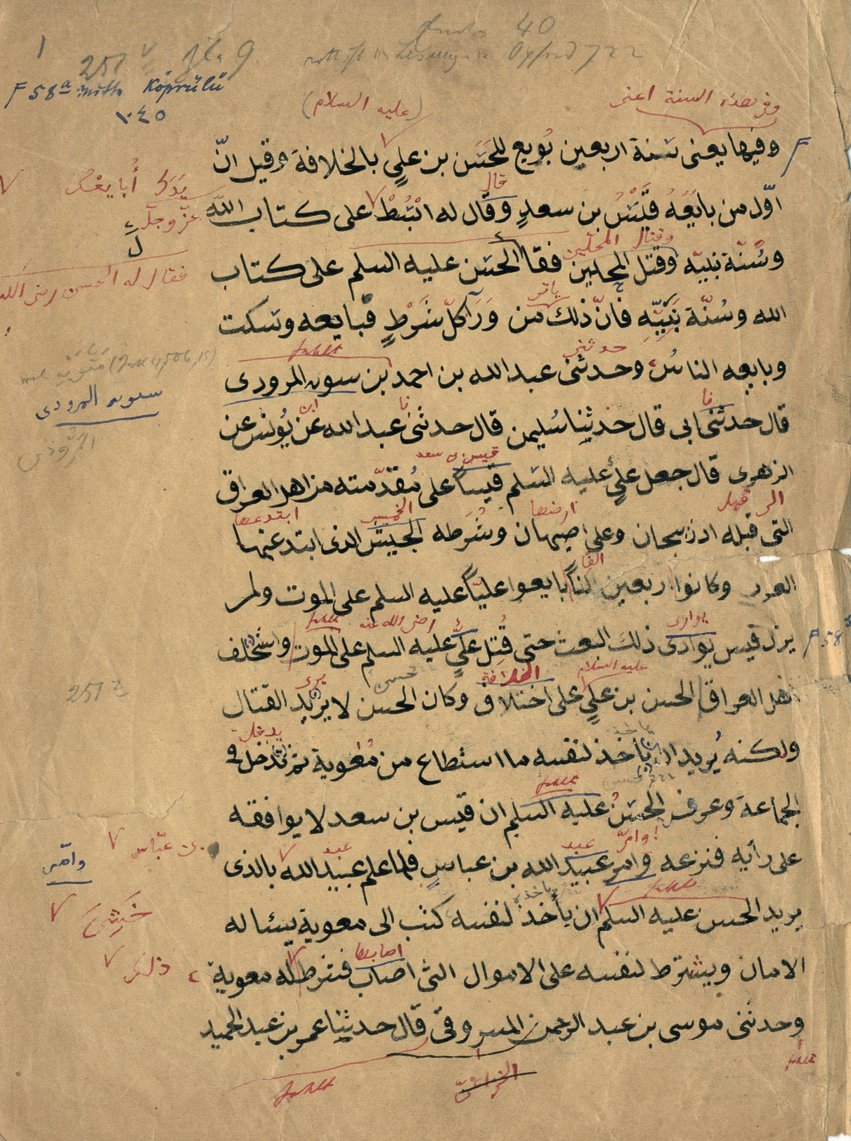

![Hurgronje did claim to convert to Islam, even marrying two Muslim wives (native Javanese) and fathering five children. He went by the name ʿAbd al-Ghaffār. [pic of Hurgronje receiving Saudi Crown Prince Suʿūd b. ʿAbd al-ʿAzīz in Leiden in 1935]... END. Hurgronje did claim to convert to Islam, even marrying two Muslim wives (native Javanese) and fathering five children. He went by the name ʿAbd al-Ghaffār. [pic of Hurgronje receiving Saudi Crown Prince Suʿūd b. ʿAbd al-ʿAzīz in Leiden in 1935]... END.](https://pbs.twimg.com/media/Ett5KBDXEAEzKDh.jpg)
![Hurgronje did claim to convert to Islam, even marrying two Muslim wives (native Javanese) and fathering five children. He went by the name ʿAbd al-Ghaffār. [pic of Hurgronje receiving Saudi Crown Prince Suʿūd b. ʿAbd al-ʿAzīz in Leiden in 1935]... END. Hurgronje did claim to convert to Islam, even marrying two Muslim wives (native Javanese) and fathering five children. He went by the name ʿAbd al-Ghaffār. [pic of Hurgronje receiving Saudi Crown Prince Suʿūd b. ʿAbd al-ʿAzīz in Leiden in 1935]... END.](https://pbs.twimg.com/media/Ett5O2oXAAEdKb_.jpg)


